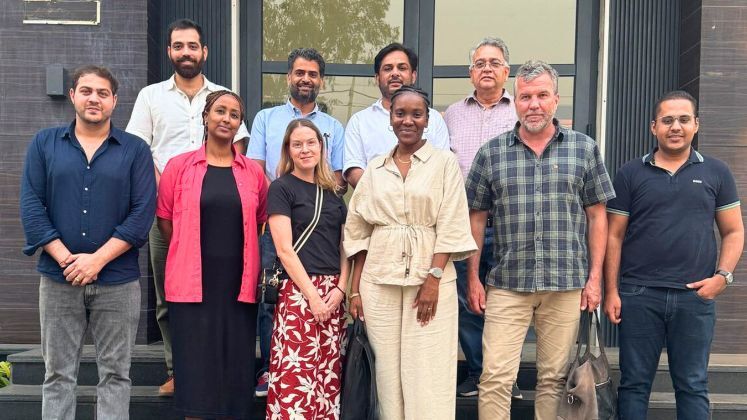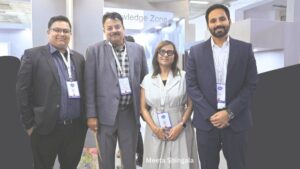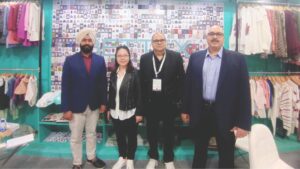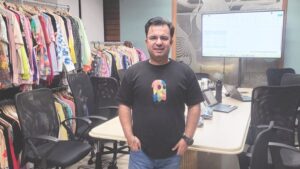
At the invitation of the Global Alliance for Textile Sustainability Council (GATS), a high-level team from the H&M Foundation and Global Fashion Agenda (GFA) travelled to Panipat, India’s premier textile recycling hub, marking a significant milestone for the global fashion and textile industry. The visit is a significant step in developing industry-wide strategies for a sustainable, inclusive, and circular textile economy.
Lennart Bernhoft, Chief Operating Officer of GFA, along with Carola Tembe (Project Director), Jodith Tesfai (Project Manager), and Elin Hallerby (Communications Lead) from the H&M Foundation, headed the trip. The GATS team, led by Chairman Parvinder Singh with assistance from Harshit Kakkar, Archish Kansal, and Sanjay Chauhan, welcomed them.
The GATS team highlighted Panipat’s crucial role in global textile recycling by showcasing its extensive waste-to-product supply chain during the tour. The team had the opportunity to observe directly how Panipat is establishing standards for inclusive growth models and closed-loop processes.
Three transformative priorities were the focus of important conversations during the visit:
Scaling the Recycling of Textile Waste: Finding strategies to greatly expand the amount of textile waste that is successfully diverted and recycled.
Improving Recyclers’ Economic Value: Creating novel models that increase the value recovered from recycled materials makes sustainable recycling more appealing and profitable.
Empowering the Workforce: Developing plans to enhance the social security, working conditions, and incomes of employees—particularly unorganised laborers—involved in the textile waste ecosystem.
In addition to this, GATS discussed its larger goal of extending its historical dominance in home furnishings by turning Panipat from a recycling hub into a sustainable and reasonably priced garment sourcing hub. GATS wants to establish Panipat as a top worldwide location for ethical sourcing by developing skills in the clothing industry with a solid foundation in social compliance and circularity.
The potential for synergistic partnerships aimed at deeply integrating sustainability into the business models of local firms was further highlighted by GFA’s ongoing work in Panipat through its “Green Threads & Weaves” project with the Foundation for MSME Clusters.






